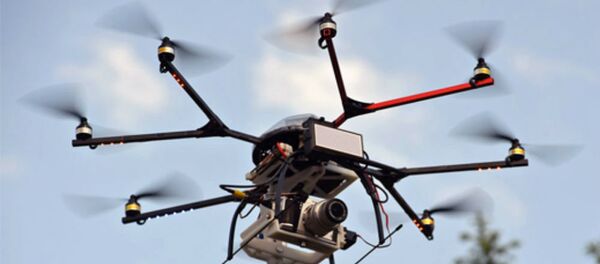The discussion also focuses on the future — whether drones will become fully automated thus not requiring a human operator at all. Professor Stupples says that it is very unlikely that technology will get that far in the foreseeable future. The possibility of hacking drones is discussed; Professor Stupples considers that this is not likely because of the sophistication of communication systems. Also discussed is the spread of the use of drones to almost all countries, as the technology becomes cheaper and drones could also be used to carry contaminants, such as biological weapons.
The conclusion reached was that far-reaching public debate is still very much needed on this issue.
We'd love to get your feedback at radio@sputniknews.com.
Have you heard the news? Sign up to our Telegram channel and we'll keep you up to speed!


